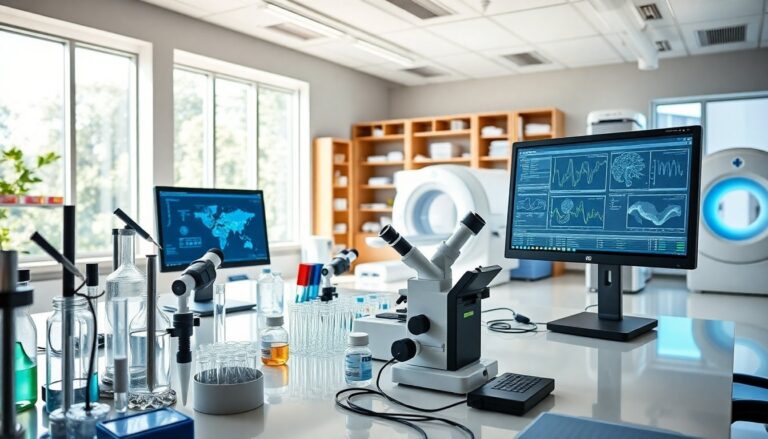Argomenti trattati
The convergence of artificial intelligence (AI) and biotechnology is reshaping healthcare. AI is driving advancements in drug discovery, genomics, and personalized medicine. This article explores the impact of AI on biotechnology, examining its transformative potential and the challenges that lie ahead.
The integration of multimodal AI—systems utilizing various data types, including genomic information, clinical records, and medical imaging—provides precise insights into biomedical research. As healthcare digitizes, AI’s role in analyzing complex datasets becomes critical, paving the way for innovations that enhance patient care and streamline research processes.
The economic implications of AI in biotechnology
The global AI market’s expansion significantly influences the pharmaceutical and biotechnology sectors. In 2024, the AI market was valued at approximately USD 233.46 billion, with projections indicating a surge to USD 1771.62 billion by 2032. Much of this growth is linked to healthcare applications, as AI-driven solutions become vital for drug design and production.
In the pharmaceutical space, the AI market was estimated at USD 1.8 billion in 2023, expected to rise to USD 13.1 billion by 2034. This growth stems from the urgent need for faster, cost-efficient drug development, especially as new genome editing technologies advance. By 2030, it is expected that over half of all newly developed drugs will use AI methodologies, highlighting the industry’s shift towards data-driven approaches.
Revolutionizing drug discovery
The traditional process of drug discovery has been time-consuming and labor-intensive. However, AI is transforming this field. Techniques such as machine learning (ML) and natural language processing streamline vast dataset analysis, enhancing the efficiency and accuracy of identifying new therapeutic candidates.
For example, during the rapid development of COVID-19 vaccines, AI reduced a decade-long timeline to less than a year. AI also identified a promising liver cancer drug candidate in just thirty days, showcasing its capacity to accelerate discovery timelines. Cloud-based platforms are increasingly automating labor-intensive drug discovery processes, underscoring the technological evolution in this field.
Challenges and ethical considerations
Despite the advancements AI brings to biotechnology, several challenges remain. A primary concern is the quality and availability of data. AI models require extensive, high-quality datasets, yet many biomedical datasets are limited or biased, compromising AI predictions’ reliability.
Additionally, the transparency of AI algorithms represents a significant hurdle. Many contemporary AI systems function as black boxes, complicating understanding of how decisions are made. This opacity can hinder model validation and raise ethical questions, particularly in critical healthcare applications. Addressing these challenges is crucial for fostering trust in AI within biotechnology and ensuring equitable access to its benefits.
Looking ahead: The future of AI in healthcare
The future of AI integration in healthcare looks promising, with advancements in multimodal AI offering potential for rational drug design and personalized treatment plans. AI can help tailor therapies to individual patient profiles, enhancing treatment effectiveness.
As the healthcare landscape evolves, collaboration among researchers, clinicians, and policymakers is essential to navigate the complexities of AI and biotechnology. By addressing data quality, regulatory frameworks, and ethical considerations, stakeholders can harness AI’s full potential to revolutionize healthcare delivery and improve patient outcomes.

